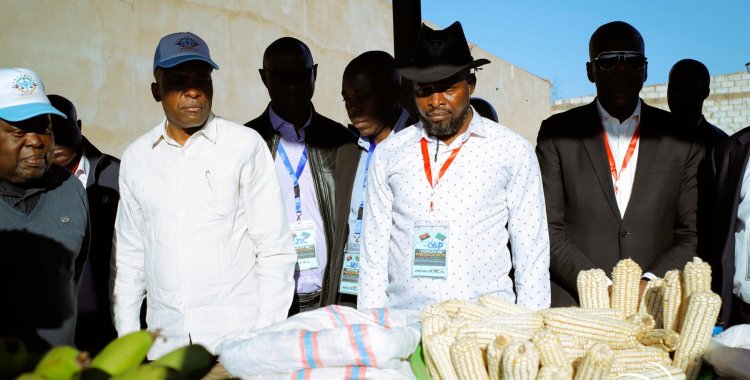On the occasion, the minister highlighted the quality and quick production time of cassava, adding that in his country it takes three years to produce this tuber, while Angola takes just over a year.
"In our country, it takes us three years to produce cassava, unlike Angola, which has the product ready in one year and three months", he said, in statements to the press, cited by Angop.
Kapelwa Mbangueta also mentioned the commitment to diversifying cultures, having mentioned that Zambia intends to experiment with Angola in this sector.
In Zambia, he said, this tuber is already being transformed to produce paper, alcoholic beverages and animal feed, in addition to being consumed as food, an experience that they also intend to implement in Angola, writes Angop.
It should be noted that a delegation from the Western Province of Zambia is in the country, as part of the business forum.
The delegation, headed by Kapelwa Mbangueta, will work in Moxico until the 29th of June, "in a vast program that includes activities such as a business excursion to agricultural areas, the Angola-Zambia Business Forum, visits to hospital infrastructures, a photovoltaic plant, exhibition fair for various segments of products and services, as well as networking, business and partnerships", indicates the provincial government of Moxico, in a statement to which VerAngola had access.
The Zambian delegation includes 54 businesspeople from the tourism, commerce, transport, agriculture sectors, among others.
As part of its agenda in the country, the delegation visited the TMariz agricultural project – considered the largest cassava producer in the east of the country –, learning that it produces 4800 tons of cassava per year.
José Mariz, responsible for the project, explained that cassava production is still carried out manually due to the high cost of the necessary materials, adding that a local company buys the cassava produced to make corn meal and that the rest supplies the informal markets in Moxico, Lunda Sul and Lunda Norte.
Quoted by Angop, the person in charge demonstrated that he was receptive to the opportunity to learn from Zambia to increase production levels, considering the knowledge and great potential that the country has in agriculture and livestock.







